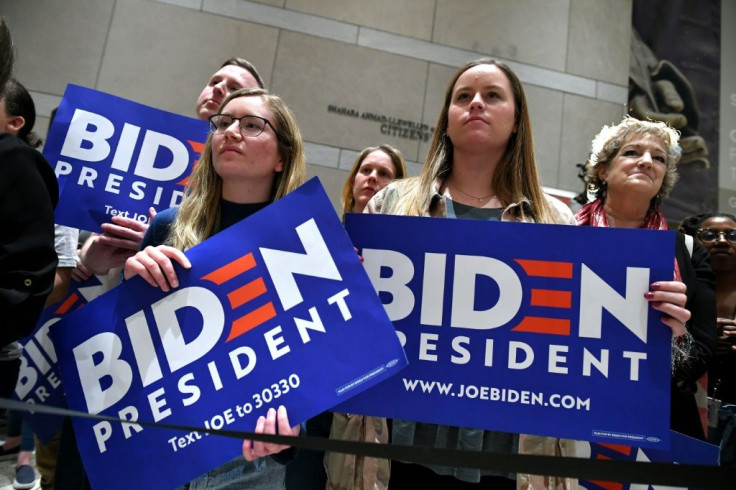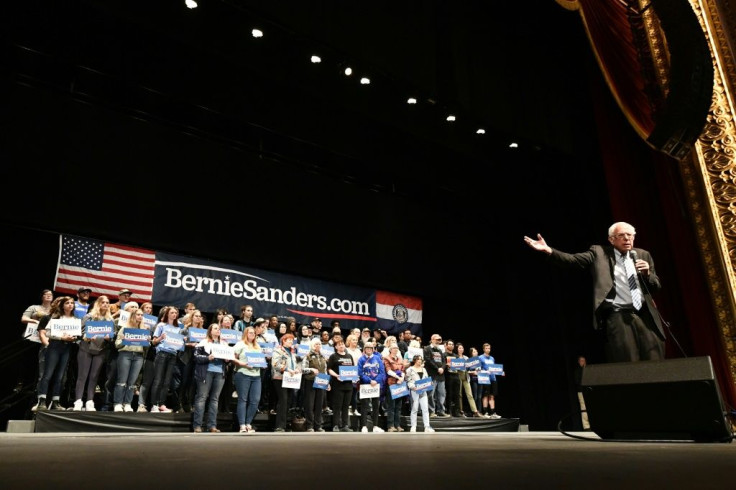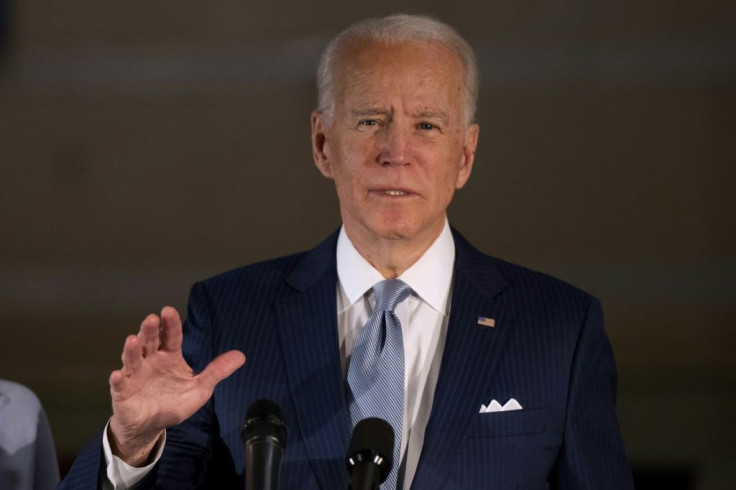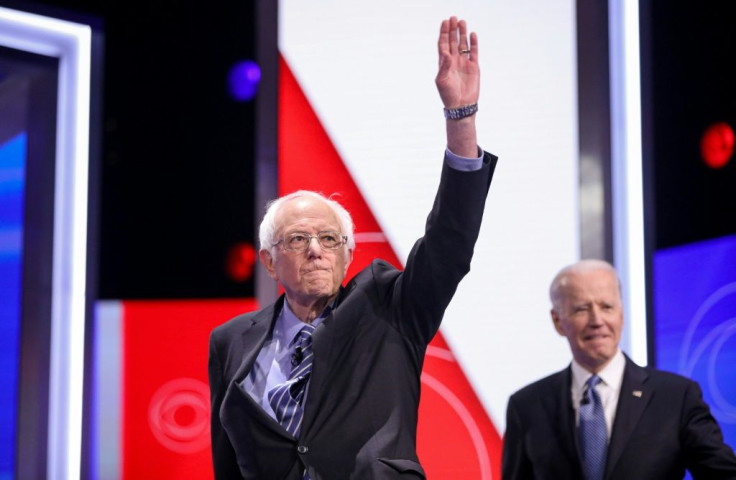Sanders Shrugs Off Primary Defeats, Remains In Democratic Race

Bernie Sanders on Wednesday shrugged off a string of primary defeats and pressure to drop out of the race for the Democratic presidential nomination, saying he remains in the fight against centrist frontrunner Joe Biden.
In his first remarks since losing to Biden in Michigan, Missouri, Mississippi and Idaho on Tuesday, the leftist senator from Vermont said his main priority was defeating "dangerous" President Donald Trump.
He acknowledged, however, in a brief, passionate speech that many Democrats see him as less electable than the 77-year-old former vice president -- perhaps preparing the ground for his eventual exit.
Speculation had been growing that he might respond to pleas from Democratic activists to step aside for party unity, giving Biden -- his only rival -- a chance to focus on campaigning against Trump.
But Sanders, 78, broke his silence to say he was preparing for his first one-on-one televised debate Sunday "with my friend Joe Biden."
While he remained defiant, Sanders did make a number of unusual statements, accepting both his losses during the primary race and perceptions that he would fare less well against Trump.
"I cannot tell you how many people our campaign has spoken to who say they agree with us but will vote for Joe because they believe he's the best to beat Donald Trump," he said.

"Needless to say, I strongly disagree with that assertion, but that's what millions of Democrats and independents say."
Sanders then listed questions he wanted Biden to answer on how to deal with far-reaching inequality and other structural issues that he believes can only be addressed by radical economic change or "revolution."
"Joe, what are you going to do?" he asked in what sounded less like an attack on Biden than an appeal for him to reach out to the party's left wing.

Biden's trajectory to a November showdown with Trump began looking unstoppable after his primary wins on Tuesday, including in the industrial powerhouse of Michigan -- a state that Sanders won over Hillary Clinton in 2016 and will be crucial in the general election.
Sanders' only win came in North Dakota while votes were still being counted in Washington state, where Sanders and Biden were in a dead heat.
Biden now has about 860 delegates to Sanders' 710, and looks set to reach the 1,991 needed to be declared the party standard bearer at the Democratic convention in Milwaukee in July.

The next primaries are on March 11 in Arizona, Florida, Illinois and Ohio and campaigning in the delegate-rich states is being disrupted by the coronavirus outbreak.
Biden and Sanders cancelled rallies which had been scheduled in Cleveland, Ohio, on Tuesday night and the former vice president announced further cancellations on Wednesday.
The Biden campaign said because of health risks it was cancelling an event that was to have been held in Chicago on Friday and one that was scheduled for Miami on Monday.
It said they would now be "virtual events" but did not release details of the format.
The Sunday debate will also be without a live audience as a result of the health scare.
Addressing supporters in Philadelphia on Tuesday, Biden reached out to Sanders, thanking him and his supporters for their "tireless energy and their passion."
Biden struck a unifying tone as he affirmed that he and Sanders "share a common goal and together we will defeat Donald Trump."
With Biden's path to the nomination increasingly locked in, the main question now is whether Sanders will swallow his pride and get his supporters behind the candidate -- or risk party civil war.
"It will be vital for Sanders to mobilize his supporters behind the ticket," tweeted Princeton University history professor Julian Zelizer.
"But Biden has to reach out to Sanders's energized movement. It will require a two-way effort to unite the ticket."
Many Democrats accuse Sanders and his devoted supporters of fatally damaging Clinton four years ago during their bitter nomination battle. They warn a similar scenario could play out this time.
Reflecting the shift in power, Democratic political action committee Priorities USA, which had been neutral in the race, came out in support of Biden.
"The delegate math is now a straight line to Joe Biden's nomination," chairman Guy Cecil told US public radio network NPR.
"So we're going to do everything we can to help him in the effort looking forward to November."
© Copyright AFP {{Year}}. All rights reserved.





















